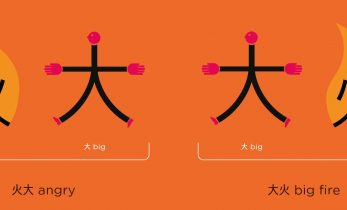Greater than 1 minutes
Do you have a specialism you cultivated without formal training or education?
I must admit that my clients dictated my specialisms at the start of my career as a freelance translator. Ceramics was the subject of my first large project; it took me six weeks to successfully complete 30,000 words.
Since then, I have carefully expanded my range of specialisms because, as you may know, we cannot become legal experts or doctors in a couple of weeks.
Surprisingly, one day a client approached me to translate a football-related commercial. I love football, so I automatically accepted the project.
Terms such as one-two, fixtures or squad list may pose a challenge for a linguist who does not have football as his/her specialism. Why? Spanish as well as any other language, has its own specific football slang, which must be learned.
Luckily, I have been learning this slang since the age of 5, when I used to listen to the radio because some matches were not broadcast on TV. I can say I have cultivated this specialism for over 20 years, and my brain seems to remember the voice of commentators vividly.
In contrast to ceramics or other subjects, the amount of parallel texts is low, and sometimes I found myself flicking through online sport newspapers to find out cultural specific terms such as “Red Devils” or “pig in the middle”.
I have now worked on several football related projects, and I love it: I am fast and accurate, and the tone of my translations recalls those passionate comments that give goose bumps to many football fans.
Do you have a specialism you cultivated without formal training or education? I would love to hear from you!





This is a very interesting topic and thanks for shedding some light on it. I do not have a formal qualification as such for the areas I am working in but I have done (and keep doing) the best I can through translation practice. I ask my work to be checked by colleagues with more experience and to be honest I feel that this helps develop translation skills.
By the way, I would have loved to get work in ceramics and mosaics as I know a thing or two in this field. When I started out, I did mention this specialty but… nothing happened. I evolved on the basis of the type of texts clients need to have translated in my main language pair but at the same time always keep an eye for opportunities in more creative fields whether it is freelance writing or exploiting these topics on my blog. The other day, for example, I wrote the bio of a fashion designer (I needed to take a break from a translation project) and it felt great!!
As far as my formal education goes, I have a BA in Sociology which has never been exactly “useful” in a professional context but I feel that whatever it is we decide to do, or what we eventually do, is a combination of little pieces that we have been constructing together. There is no standard pathway that leads to a specialisation, even if a formal education and training (through courses) seems to be the ideal and most viable route.
ps: Your specialisation seems really challenging! I have the impression that in Italy this would be much sought-after!
Hello Magda,
I am glad you found my post interesting. I agree that translation practice is key for everyone!
Hello David,
I started working in my father’s office when I finished school, I was 19 years old. I started translating the correspondence and a bit later I translated all the textile machinery for different German and Swiss companies of textile machinery manufacturers we represented in Greece. This was my first experience from translations, using a typing machine, no TM’s, no CAT tools just thick dictionaries I found in my father’s office. After a five years break in the tourism sector – I have built a small hotel business with my sister in law – and as I was pregnant with my son, I decided to work as a full time translator at home. Since 2002 I mostly translate technical texts. It’s been almost 14 years and I still have the same customers although I haven’t studied anything relating to machinery or technical subjects but I have always tried to be prompt in my deliveries, friendly and cooperative. I am also interested in CAT tools and try to learn all the new tools in the market.
Hello Adamantia,
That is a great testimony. I hope that your approach to translation brings you lots of success. Feel free to follow me on Twitter (@TrustYourBrand) to keep up with all my new posts!
Hello David and everyone else,
I’m so happy do discover that I’m not the only one who never enjoyed formal translator training but somehow ended up in this amazing profession! My personal lateral entry came through video gaming. I, similar to Magda, have a BA that you can’t really do anything with (American Studies). Through pure chance, blind luck (and maybe more talent than I thought I had), I got my first translation job in the video gaming industry in 2012. I am now a successful freelance translator specialized in video games, websites, and mobile apps, and I’ve never looked back or regretted the strange and quite long path that got me here. I couldn’t be happier that my former free time passion about video games has turned into how I make a living! There is no college course on video gaming terminology, of course, but being a passionate gamer myself makes it easy for me to carry the terminology over into my projects, much like you, David, described knowing football terminology from being a passionate football fan for most of your life.
Hello Inga,
You actually have a BA, so you have formal education! We have the privilege of using our passions at work, which makes life easier. Feel free to follow me on Twitter (@TrustYourBrand) to keep up with all my new posts!
Hello! One of my dreams was specialising in football translation, but that sadly never happened… My BA thesis was about soccer translation. I translated and analysed a few chapters written by Guardian author J. Wilson. And yes, I only needed to tap into that knowledge I had acquired since I was 4 just watching Inter play.
This also happens to me when I translate my favourite TV series as well sometimes 🙂
Hello Valentina,
As you mentioned: “sadly never happened” YET. I am sure you will translate football related content in the future, pursue your dream. Feel free to follow me on Twitter (@TrustYourBrand) to keep up with all my new posts!
PS: I would love to read your BA thesis 🙂
Hi David,
Like you, I have specialised in sports translation without ever having studied it. Before becoming a freelance translator, I lived in Spain and worked for a bilingual (Spanish/English) newspaper. I both translated articles from Spanish for the English newspaper and wrote original articles in English. One day the person who usually did the sports pages left and they needed someone to take over. As the only person in the office who liked sports (I am a football fan and play several sports myself), I was given all of the sports texts from that point on and it ended up being the topic I enjoyed working on the most! Now that I am a freelance translator I find that I don’t get to do as much sports translation as I would like, but it’s still my favourite 🙂
Susie
Hello Susie,
It is great that you like sports. I do not get a large number of projects in this sector neither, but the ones I get are well paid and I really enjoy. I hope that we both spend more time working in this area. Feel free to follow me on Twitter (@TrustYourBrand) to keep up with all my new posts!